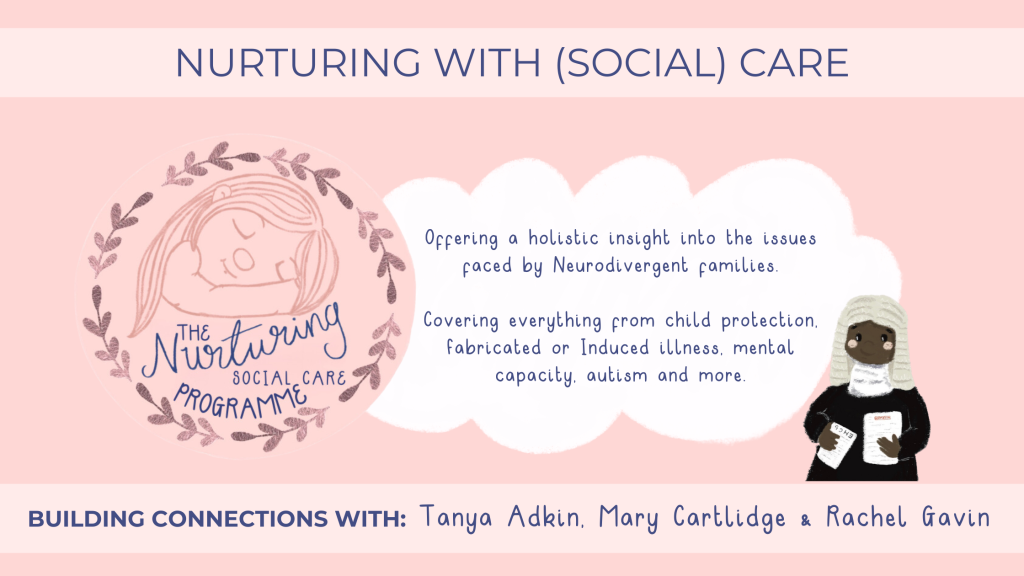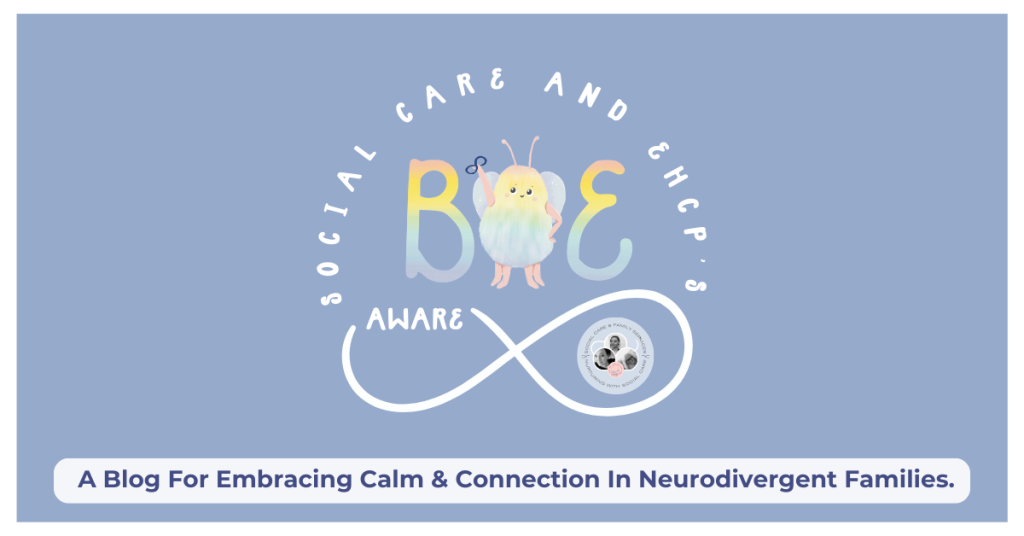We often get asked why a young person might need a social care assessment as part of the EHCP process. Social Care is traditionally viewed as being the realm of safeguarding, but in relation to children with SEND, it’s much more than that.
Technically speaking, any disabled young person is a Child in Need under the Children’s act 1989; however, case law dictates that
“There is no requirement for local authorities to carry out social work assessments of every disabled child. Local authorities can instead offer a Common Assessment Framework assessment or other ‘Early Help’ assessment in some cases” (R (L and P) v Warwickshire County Council [2015] EWHC 203).
This is unhelpful because it allows Local Authorities to set their own thresholds regarding who does and doesn’t qualify for an assessment. If your young person has an EHCP, chances are they also have social care needs, but they may not meet the thresholds set by your Local Authority. This means they are never assessed as having needs that require social care provision, resulting in no social care provision.
You might seek to commission an independent social care assessment to remedy this issue and contribute to the EHCP. The assessment can then be used to appeal via the national trial, which extends first-tier tribunal powers to include health and social care.
The Social care: guide to the 0 to 25 SEND code of practice (2014) tells us that:
“Where a child or young person has been assessed as having social care needs in relation to their SEN or disabilities social care teams:
must secure social care provision under the Chronically Sick and Disabled Persons Act (CSDPA) 1970 which has been assessed as being necessary to support a child or young person’s SEN and which is specified in their EHC plan.”
What is Social Care provision under the CSDPA 1970?
“(a)the provision of practical assistance for the child in the child’s home;
(b)the provision of wireless, television, library or similar recreational facilities for the child, or assistance to the child in obtaining them;
(c)the provision for the child of lectures, games, outings or other recreational facilities outside the home or assistance to the child in taking advantage of available educational facilities;
(d)the provision for the child of facilities for, or assistance in, travelling to and from home for the purpose of participating in any services provided under arrangements made by the authority under Part 3 of the Children Act 1989 or, with the approval of the authority, in any services, provided otherwise than under arrangements under that Part, which are similar to services which could be provided under such arrangements;
(e)the provision of assistance for the child in arranging for the carrying out of any works of adaptation in the child’s home or the provision of any additional facilities designed to secure greater safety, comfort or convenience for the child;
(f)facilitating the taking of holidays by the child, whether at holiday homes or otherwise and whether provided under arrangements made by the authority or otherwise;
(g)the provision of meals for the child whether at home or elsewhere;
(h)the provision of a telephone for the child, or of special equipment necessary for the child to use one, or assistance to the child in obtaining any of those things.”
-HM Government (1970) Chronically Sick and Disabled Persons Act.
As you can see above, the provision is very broad and can apply to many things. Some common themes we comment on in relation to the above include transition issues, extended throughout-the-day curriculums, personal assistant support in the home, access to the community and much more.
The previously mentioned common assessment framework in relation to the Warwick caselaw is also very broad, this means that Social Care can comment on any area included in the framework.

This technically means that there is very little a social worker cannot legally comment on, which in the arena of EHCPs can be highly beneficial when the process seeks to silo down to individually assessed needs, tie them all together and hope for the best.
A lot of the time, social care needs are also education needs. Education, Health and Social care are intrinsically linked, which means a lot of social care recommendations can be section F provision.
“Where a CYP does not just need help with basic life skills (such as dressing or washing) (sometimes referred to as independent living skills), which would be social care, but also needs to learn those things (such that the provision in question needs to educate/train the CYP to help develop/enhance their independent living skills or basic life skills) which could make it educational provision; and so the CYP has an educational need arising from their difficulties in those areas.” (Noddy Guide, 2022)
Under Section 17 of the Children’s Act, Social Workers should consider the parent/carer’s needs and parenting capacity as it recognises the need for a holistic assessment to fully capture the range of needs and provisions needed to meet those needs.
Sometimes we get pushback from legal and judges regarding what we should be commenting on, telling us that we are outside our remit. They believe we should just focus on those provisions ordinarily available via Local Authority Services.
We simply point out the common assessment framework, the role of a social worker, case law, and how we are ethically bound to comment on anything that affects the YP’s welfare. This means we talk about SaLT, OT, Educational Provision, and anything that applies to the YP’s overall welfare.
It is surprising and, frankly, terrifying how little professionals (even legal professionals) know about Social Care law.
It is imperative to obtain social care advice if you are seeking an extended day/waking day curriculum or independent living provision.
Wishes and Feelings, Capacity and Post 16.
This is sometimes neglected in the lives of disabled YP, unless it’s weaponised by the opposing party. It is central to everything we do, especially post-16 when the Mental Capacity Act applies.
The Mental Capacity Act, post 16 can be tricky. We will create a separate blog specifically on this subject, as it is much needed for parents and carers. They often find themselves at the mercy of the Local Authority regarding this because they simply weren’t aware and assume that parental responsibility covers them until the YP is 18. We undertake capacity assessments (that can be used for the Court of Protection), have a lot of involvement in the best interest process and protect young persons’ liberties (Deprivation of Liberty Orders/Liberty Protection Safeguards). Social Workers are considered experts in this area.
Preparing for adulthood-
From year 9 onwards, transition to adulthood is a legal consideration in EHCPs however, Social Care: guide to the 0 to 25 SEND code of practice (2014) states:
“Preparing for adulthood should form part of the planning for all children and young people with SEN and disabilities from the earliest years.”
Most LA’s will wait until the year nine trigger to look at this. However, we should be assessing independence skills in relation to same-age peers and making provisions to help achieve outcomes via social care from the outset. This can include dressing, managing personal care, money management and much more.
Ethics
Furthermore, Social Workers are bound by a code of ethics, which includes “Challenging unjust policies and practices”. This means that Social Workers are ethically bound to challenge unjust practices professionally. For us, this looks like parent blame, fabricated and induced illness, unlawful practice, disregard for evidence-based practice etc.
And challenge we do. Frequently!
We are there to be in the young person’s corner.
In conclusion
There isn’t much that Social Workers can’t comment on and as such a good social care assessment can often be the oversight that’s needed to provide a holistic and balanced view of the entirety of a situation to achieve the best outcomes for all involved, including those in the young person’s wider world. This can be especially helpful if your young person presents in a way that would generally be considered ‘complex’.
To enquire about an independent social care assessment or book a consultation, please email: MaryCartlidge.ISW@gmail.com or AdkinTanya@Gmail.com
Click the image below to join us for our FREE Q&A on 13th September 2023


